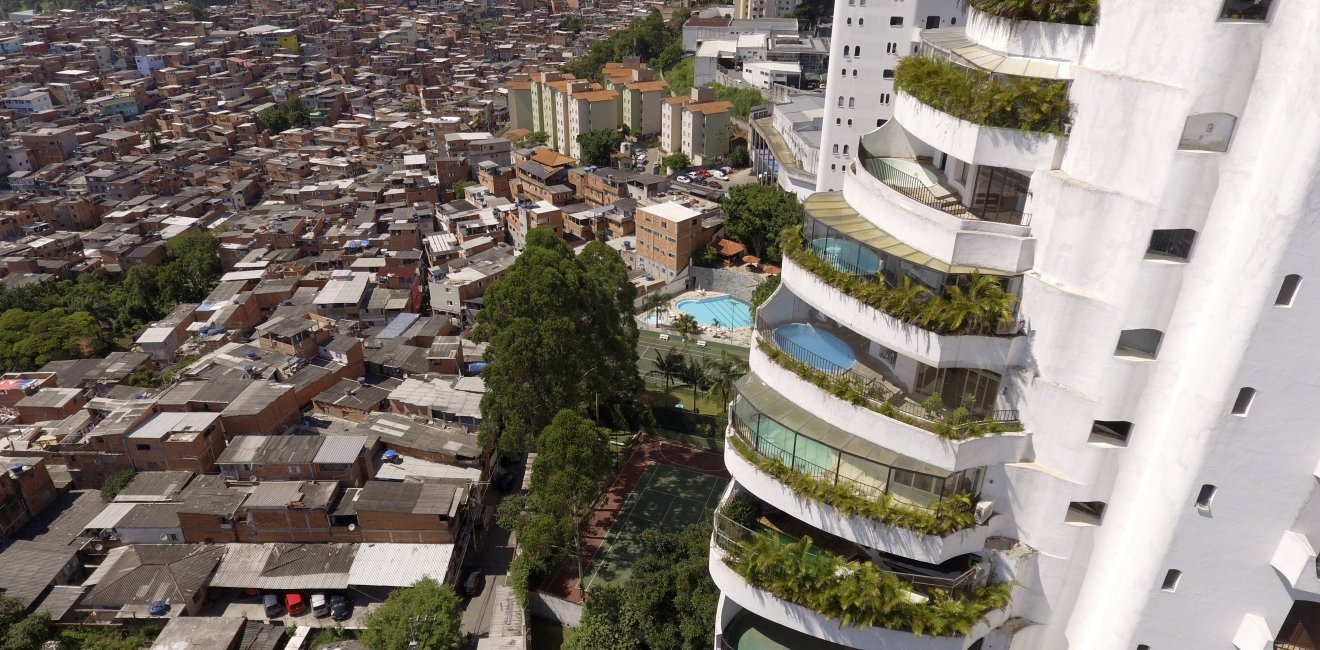Paths of Inequality in Brazil: A Half-Century of Change
Paths of Inequality in Brazil: A Half-Century of Change is the most comprehensive study to date of social and economic mobility in Latin America’s largest nation.
Paths of Inequality in Brazil: A Half-Century of Change is the most comprehensive study to date of social and economic mobility in Latin America’s largest nation.

Paths of Inequality in Brazil: A Half-Century of Change is the most comprehensive study to date of social and economic mobility in Latin America’s largest nation. A multidisciplinary analysis of the historical trajectories of various form of inequality in Brazil from 1960 to 2010, the book was originally published in Portuguese in 2015. The recently released e-book version in English widens the reach of this important volume, furthering understanding and fostering debate on the structures and legacies of inequality in Brazil - with lessons for the rest of the world as well.
The e-book, released on June 23rd, is the result of a collaboration between Editora Unesp and Springer, supported by the São Paulo Science Foundation (FAPESP) and facilitated by the Brazil Institute of the Woodrow Wilson International Center for Scholars. The Brazil Institute hosted an all-day seminar in early 2016 with authors, with a number of U.S. experts invited to critique and discuss the findings. The seminar was led by the book’s editor, Professor Marta Arretche, the University of São Paulo’s Department of Political Science, who authored the preface (available for download below).
As one of the most unequal countries in the world, Brazil has always been an important case study for scholars researching inequality, but in the last few decades a new trend has renewed researchers’ interest in the country. While the majority of democracies in the developed world has witnessed an increase in income inequality from the 1970s on, Brazil has followed the opposite path, registering a significant reduction of income inequality over the last 30 years.
Bringing together studies carried out by experts from different areas, such as economists, sociologists, demographers and political scientists, this volume presents insights based on rigorous analyses of statistical data in an effort to explain the long-term changes in social and economic inequalities in Brazil. The book adopts a multidisciplinary approach, analyzing the relations between income inequality and different dimensions of social life, such as education, health, political participation, public policies, demographics, and labor market.
All of this makes Paths of Inequality in Brazil: A Half-Century of Change a valuable resource for anyone interested in inequality research, but particularly for sociologists, political scientists and economists interested in the social and economic changes and challenges that Brazil went through over the last two decades and will continue to face in the aftermath of this year’s crucial presidential, gubernatorial and general elections in October 2018.



The Brazil Institute—the only country-specific policy institution focused on Brazil in Washington—aims to deepen understanding of Brazil’s complex landscape and strengthen relations between Brazilian and US institutions across all sectors. Read more



